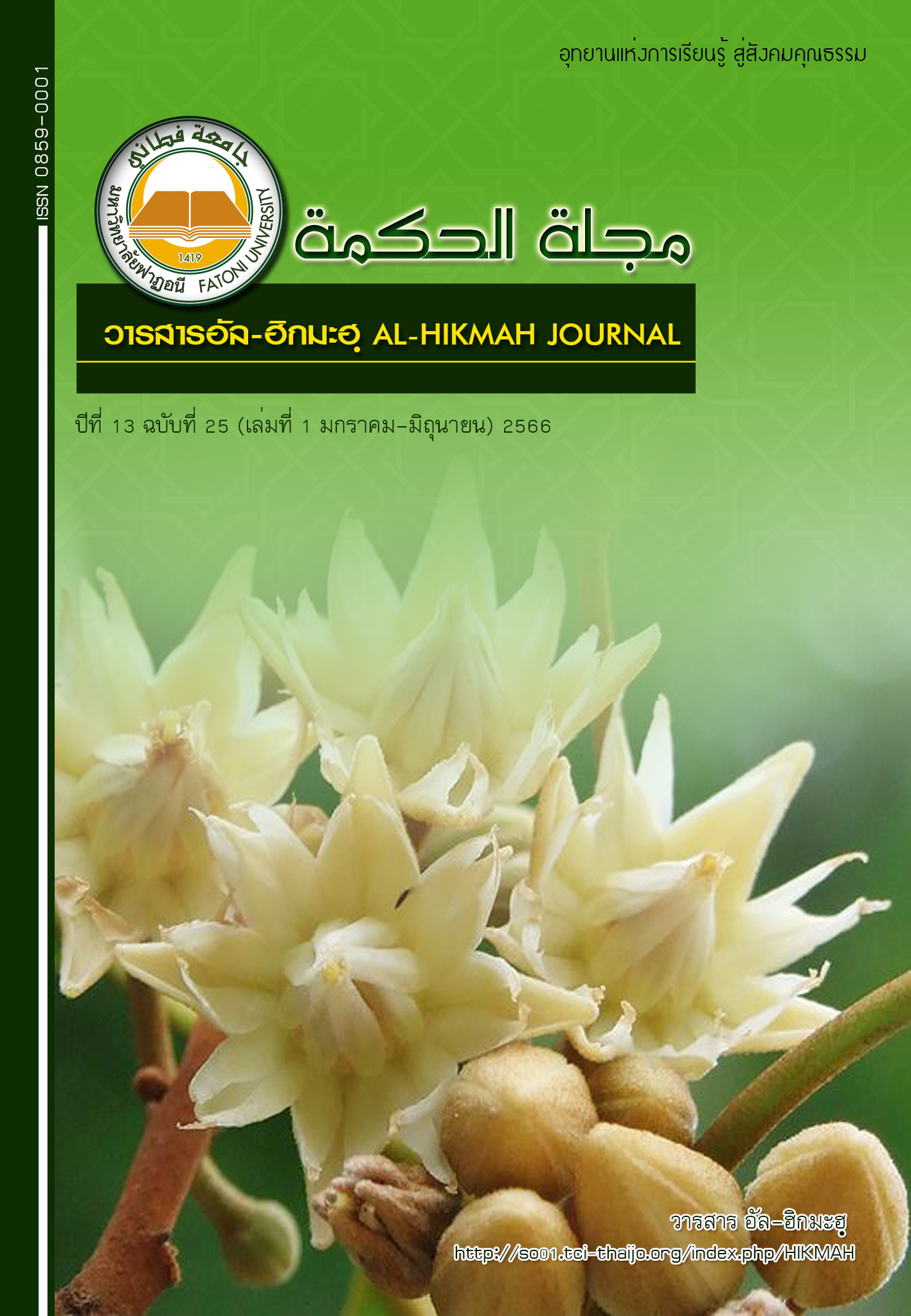Islamic Economic Affects Foundation of Entrepreneurs Understanding of Halal Business and Human Resource Development
Abstract
The article objective describes economics and the most valuable use of resources. Literature and relevant contexts in the Islamic Business Invention World 2022 Recognize and understand Islamic principles by conducting a study of 18research papers related to the implementation of Islamic business practices that have an important impact on Islamic business practices. It continues to create an understanding of entrepreneurship and Islamic principles that apply to all ages. transaction operations Islamic finance Personnel Management art of coexistence social activity principles involvement in politics This article can enhance the understanding of entrepreneurs to operate their business in order to make profits right in the principles of strengthening and growing entrepreneurs.
References
Ahyani, H., Putra, H. M., Slamet, M., & Mutmainah, N. (2022). Standardization of Companies
and The Islamic Business Environment in Indonesia. Jurnal Ilmiah
Ekonomi Islam, 8(1), 10-20.
Alam, M. A., & Talib, N. (2016). Islamic work ethics and individualism in managing a globalized
workplace: Does religiosity and nationality matter?. Journal of
Management & Organization, 22(4), 566-582.
Beekun, R. I. (1997). Islamic business ethics (No. 2). International Institute of Islamic Thought (IIIT).
Choudhury, M. A. (1986). Contributions to Islamic economic theory: A study in social
economics. Springer.
Choudhury, M. A. (1990). Islamic economics as a social science. International Journal of Social Economics,
(6), 35-59.
Furqani, H., & Echchabi, A. (2022). Who is Homo Islamicus? A Quranic perspective on the economic agent
in Islamic economics. ISRA International Journal of Islamic Finance, (ahead-
of-print).
Hasbullah, M. A. (2022). Business Competition Law in the Perspective of Islamic Business
Ethics. Journal of Positive School Psychology, 6216-6226.
Hefner, R. W. (2006). Islamic economics and global capitalism. Society, 44(1), 16-22.
Hashim, M. (2012). Islamic perception of business ethics and the impact of secular thoughts on Islamic
business ethics. International journal of academic research in business and social
sciences, 2(3), 98.
Ismaeel, M., & Blaim, K. (2012). Toward applied Islamic business ethics: responsible halal business. Journal
of Management Development.
Junaidi, J., Anwar, S. M., Alam, R., Lantara, N. F., & Wicaksono, R. (2022). Determinants to
adopt conventional and Islamic banking: evidence from Indonesia. Journal
of Islamic Marketing.
Khan, F. R., Mirza, M. O. N., & Vine, T. (2022). The UN Global Compact and the Ulama
(Religious Scholars of Islam): A Missing Voice in Islamic Business Ethics.
Journal of Management Inquiry, 10564926221089204.
Mat, I. (2008). A review of Fiqh al-Mua'malat subjects in economics and related programs at
international Islamic University Malaysia and University of Brunei
Darussalam.
Maududi, A. A. (1986). Islamic way of life. Scribe Digital. com.
Nawaz, T., Haniffa, R., & Hudaib, M. (2021). On intellectual capital efficiency and shariah governance in
Islamic banking business model. International Journal of Finance & Economics, 26(3),
-3787.
Prasetya, T. E., Nasution, S., Firdaus, M. I., & Rasyadi, M. F. (2022). The Concept of Minimum
Wage for Workers in Law No. 11/2020 in the Perspective of Fiqh
Muamalah. Al-Iktisab: Journal of Islamic Economic Law, 6(1), 79-98.
Pryor, F. L. (1985). The Islamic economic system. Journal of Comparative Economics, 9(2),
-223.
Qasim, M., Irshad, M., Majeed, M., & Rizvi, S. T. H. (2022). Examining impact of islamic work
ethic on task performance: mediating effect of psychological capital and
a moderating role of ethical leadership. Journal of Business Ethics,
(1), 283-295.
Rasidin, M., Sidqi, I., & Witro, D. (2020). DROP SHIPPING IN ISLAMIC ECONOMIC LAW
PERSPECTIVE: E-COMMERCE STUDY INTER MARKETPLACE DROP SHIP IN
THE INDUSTRIAL REVOLUTION ERA 4.0. Nurani: Jurnal Kajian Syari’ah Dan
Masyarakat, 20(1), 97-106.
https://doi.org/https://doi.org/10.19109/nurani.v20i1.6029
Rokhman, W. (2010). The effect of Islamic work ethics on work outcomes. EJBO-Electronic
Journal of Business Ethics and Organization Studies.
Salaheldeen, M., Battour, M., Nazri, M.A., Ahmad Bustamam, U.S. and Hashim, A.J.C.M. (2022),
"The perception of success in the halal market: developing a halal
entrepreneurship success scale", Journal of Islamic Marketing, Vol.
ahead-of-print No. ahead-of-prin
Siswadi, Y., & Soemitra, A. (2022). Literature Study on Fiqh Muamalah Digital Business
Transactions (e-commerce). International Journal of Economics, Social Science, Entrepreneurship and Technology (IJESET), 1(3), 220–236.
World population 2021 | Population clock live". countrymeters.info. Retrieved 2 September
Downloads
Published
How to Cite
Issue
Section
License
Copyright (c) 2023 Al-HIKMAH Journal

This work is licensed under a Creative Commons Attribution-NonCommercial-NoDerivatives 4.0 International License.



